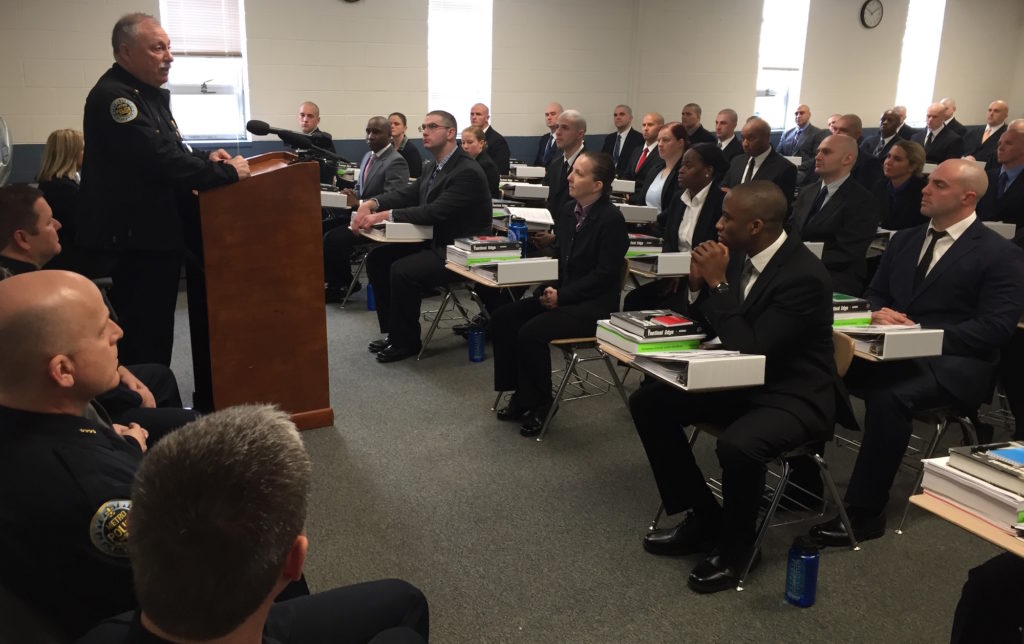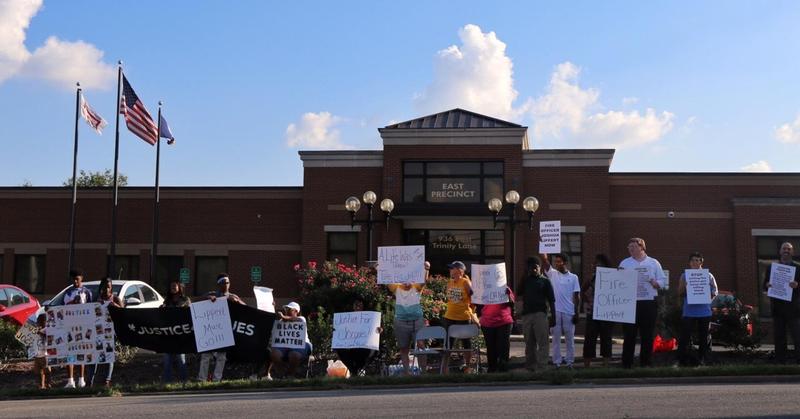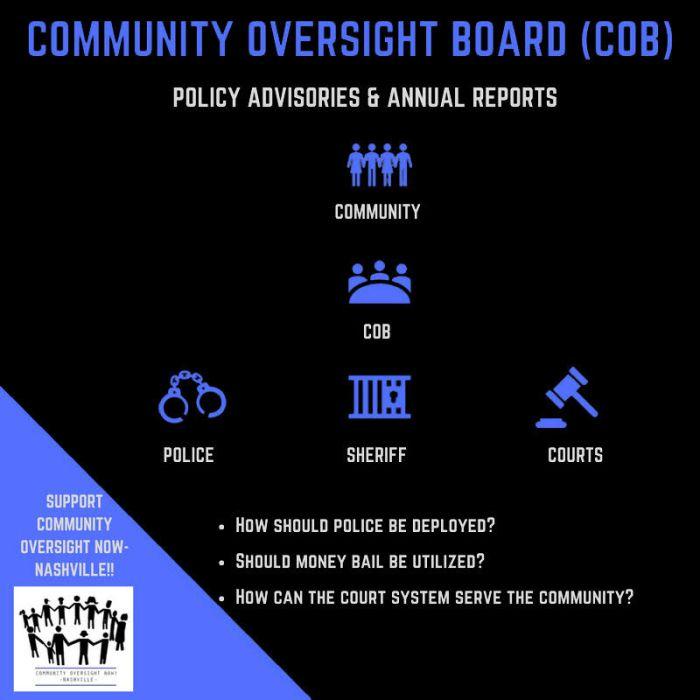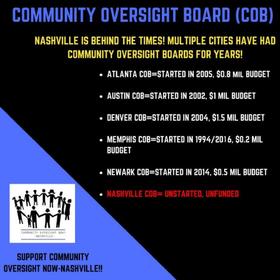
Legislation proposing a community oversight board to investigate police misconduct will make its way to Metro Council for the first time on Tuesday. The movement gained steam after a damning study on the disproportionate treatment of African American drivers in Nashville and the subsequent death of Jocques Clemmons, an African American man shot to death by a Metro officer after he ran during a traffic stop in February. The officer was not charged.
A group, including Clemmons’ mother, has been protesting daily in front of the precinct where the officer is still on desk duty.

Supporters of the measure say they might be able to avoid situations like this in the future. Right now, when a citizen files a complaint against police, the department gets to investigate themselves. But a so-called “community oversight board” would be staffed by civilians who could establish fully independent investigations.
For it to work, the board would need to have complete autonomy, including its own budget for full-time legal staff, the power to review and recommend change to policies in the police manual and even the right to subpoena witnesses. A group calling themselves “Community Oversight Now” has been working with some members of Metro Council for months to draft legislation.
Members are unpaid volunteers, and should have a demonstrated knowledge of and/or experience with civil rights, policing, racial justice, criminal justice, or other similar issues. Members should be committed to providing fair oversight on behalf of both the public and law enforcement. Current and recently retired law enforcement and elected officials are not eligible to serve as board members of the COB
Having police officers police themselves through the Office of Professional Accountability presents obvious conflicts of interest,” reads a statement on the group’s website. “
Records show that civilian complaints are almost always resolved in favor of the officer.” They’ve been doing all this without the support of a key player — Mayor Megan Barry. But that may be changing. At a community forum led by Nashville Organized for Action and Hope, one of the groups pushing for the creation of a board, Barry said she’s willing to talk. “The answer is yes,” she said. “I will be happy to join NOAH in convening this group to discuss the oversight board. And to work towards that criminal justice reform.”
In April, Barry said she would not support the initiative and questioned its merits. She preferred focusing on other measures, like rolling out body cameras and inviting the Policing Project, a New York based initiative which works with community members and local police departments to draft new conduct guidelines. The proposed group to discuss the oversight board would likely be part of the Policing Project’s conversation.

And that sudden change is something that raised questions for some local activists who’ve been working on designing the police oversight structure.
“We have been doing this work for almost a year now and our work has resulted in the piece of legislation that is in front of the council right now. Most of the people doing the work are people in organizations of color,” said Theeda Murphy with Justice for Jocques Coalition. “Of course we want [Barry] to support the legislation, we need her support, but we don’t want her to ignore the fact that we’ve already done all this work. And that the legislation is strong. We are afraid that it will be watered down.”
Chief Steve Anderson, head of the Metro Police Department, doesn’t think the legislation is needed at all. In a statement, Metro Police said sponsors of the proposed ordinance have had no communication with Anderson and after reviewing the proposal “frankly are extremely alarmed by its provisions”, adding that the proposed ordinance “seeks to put forth a remedy to a situation that does not exist in Nashville.”

But those backing the proposal would disagree.
Community groups like the local chapter of the NAACP have been asking for independent police oversight since as early as the 1990’s when another African American man was killed by police.
A number of cities including Atlanta, Denver, Miami and Memphis already have such accountability measures in place.

